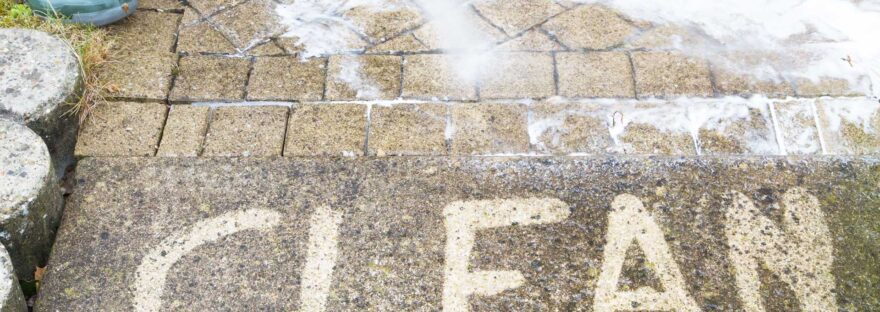Power washing can be a quick and efficient way to clean your home or outdoor spaces. However, it’s important to follow certain standards when using a power washer in order to avoid damage and ensure a thorough cleaning.
Choosing the right pressure and detergent is essential, as well as knowing what surfaces require extra care. For instance, it is never a good idea to blast off lead paint.
Nozzles
There are a number of different pressure washing nozzles that you can use to dispense water at varying rates and angles. Each of these nozzles come in a variety of colors to help identify their use. The nozzle color represents the pressure and flow rate of the spray. It also indicates the spray angle, which can range from a narrow fan to a wide, sweeping pattern.
The standard nozzles that come with a pressure washer are usually colored red, yellow, green and white to help identify the appropriate pressure and the spray angle for each job. These nozzles can be used to clean any type of surface, but each has its own unique cleaning ability.
Nozzles that are sized incorrectly can cause damage to your equipment and even break under too much pressure. If the nozzle orifice is too large, it will not create enough pressure and may clog quickly. Conversely, a nozzle that is too small will cause the machine to over-pressurize and possibly damage the hose.
A red nozzle produces the strongest spray and provides the greatest power for hard surfaces such as concrete and metal. However, it can be too powerful for wood or other softer surfaces and must be used carefully to prevent injury or property damage.
Yellow nozzles produce a more concentrated fan than the red, and are effective on heavy dirt, grime and stubborn stains. They can be used on wood, vinyl siding and concrete, but must be held at a distance to avoid scarring the material.
Green nozzles provide a gentler spray that is effective on most soft surfaces, such as wood decking or vinyl siding. They can also be used for concrete and brick, and for surface prep before painting or staining.
The white nozzle provides a wide, gentle spray with low-pressure power. It is ideal for rinsing fragile surfaces, such as vinyl house siding or stucco walls, and for removing debris from garden furniture or patios. It is also suitable for rinsing down vehicles and equipment without the need to move them. It can be a lifesaver on construction sites where you need to rinse off mud and grime from 4×4 vehicles or equipment.
Pressure
Power washing uses a high-pressure spray to remove contaminants from buildings, equipment and structures. The pressure can be adjusted to prevent damage and clean surfaces thoroughly without the need for chemicals. It is important to remember that this type of cleaning should be performed by a professional who understands the proper use of pressure washing tools and techniques.
When choosing a power washer, it is vital to make sure that the unit has the proper pressure rating and flow. The nozzles on the machine should be marked to indicate the pressure and flow rate, as well as the spray angle. In general, most power-washing contractors recommend using a unit with a minimum pressure rating of 3000 psi. This will provide adequate cleaning power for most commercial and residential jobs.
Hot water is also important for power washing. This helps to remove dirt more effectively and also makes the job much safer. It is recommended to use a high-pressure washer with a thermostat that allows the technician to control the temperature of the water being used.
It is also important to remember that waste water from power-washing activities must be contained and disposed of properly. Depending on the location, regulations may prohibit water runoff from being released into storm drains or into waterways. For this reason, it is critical to find a power-washing service provider that utilizes a containment system for wastewater. This can include wet vacs, portable containment areas or berms.
Keeping commercial buildings, parking lots, driveways, roofs and dumpster areas clean can have positive effects on consumers’ impressions of your company. The outside of a building is often the first thing that consumers see, so making sure that it is free of stains and other environmental pollutants is essential. Using a professional power-washing company can ensure that all cleaning is completed safely and efficiently, reducing the risk of EPA fines or other environmental liabilities.
Temperature
The temperature of the water used for power washing is a key factor to consider. Some cleaners will work slower in cold weather and some won’t even work at all below a certain temperature. It’s important that the power washing is conducted within the correct temperature range to ensure maximum efficiency and avoid damage to the surface being cleaned or to the pressure washer itself. For this reason, it is best to power wash during warmer weather whenever possible. Heated power washers can also help mitigate the effects of cold weather on your cleaning job. This is especially important in the winter when ice can build up and cause injuries and property damage if left unattended.
